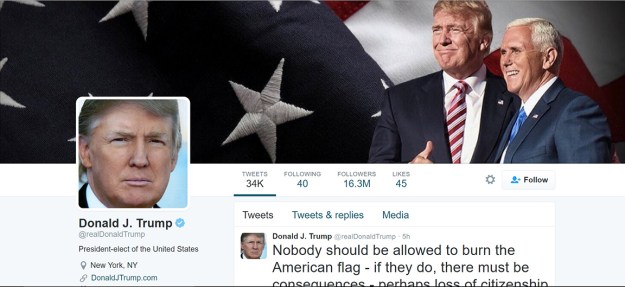Just to start off the week, which is worse?
- Trump deciding he doesn’t need the daily intelligence briefing — even though, you know, there’s never been a president-elect in our history more painfully in need of one. I have to admit I cringed right after the election when it was reported he would start getting these — the very idea of the least discreet man in America being briefed on the nation’s secrets — but Trump not getting such briefings is actually much more disturbing. I mean, if he gets enough of them, maybe, just maybe, he’d start to get a clue. And perhaps that’s why he doesn’t want to get them. Having a clue would cramp his style.
- Trump waving off the assessment by intelligence professionals that the Russians tried to hack our election to benefit him.
My immediate reaction, of course, is that absurdity No. 2 is the worse one, because what could be more dangerous than a president who says “No, they didn’t” to evidence that Russia was trying to do such a thing to this country, striking at the very core of our democracy? And of course, we know why he dismisses it: It suggests he is less awesome than he thinks he is, and that he needed help to win. Which makes his stubborn refusal to accept facts even more alarming — because what has concerned us most about Trump, if not his penchant for placing the stroking of his own fragile, unstable ego ahead of every other consideration?
If only someone could tell him the bad news in a good way — pointing out that no one is saying the Russians won the election for him (at least I haven’t heard that yet); we’re just saying that Putin may have committed an extraordinarily hostile act against this country, just by trying. Of course, even then, we’d run up against a key goal of the incoming Trump administration, which is to favor Russia — something of which we got another reminder via the nomination of the ExxonMobil guy for secretary of state. And once again, Trump is utterly uninterested in, and hostile to, any information that might contradict what he wants to believe. (He’s like his supporters in that regard, the ones who choose their own alternative-reality “news” sources.)
(A digression: On the radio this morning, someone was wondering why, if you want to cozy up to one superpower wannabe and tick off another, why choose moribund Russia to be your pal instead of the dynamic, growing China? Good question.)
But the more I think about it, the more I think absurdity No. 1 may be the bigger problem.
If I were president, or president-elect, I would consider the intelligence briefing the most important part of my day, most days. My temptation would be to let it take up more of my day, rather than less. On the days that the briefing was boring — just same-old, same-old — I would count my blessings. The worst briefings would tend to be the extremely interesting ones.
Because I have a better grasp of international affairs than Trump does (here we go — comments are on the way telling me he’s smarter than I am because he has more money — but this is one thing where I’m pretty confident, because a guy doesn’t need to know much about foreign policy to know more than Trump), I know how much I don’t know, and I would want to do everything I could to know more.
And as I said, our country has never had an incoming leader who needed these briefings more than this guy. If he had these steady, daily tutorials, he may even begin to develop something we might loosely term perspective.
But he doesn’t want that. He thinks he knows everything, when he actually knows less than Jon Snow — if he knew nothing, he’d be better off than he is “knowing” all the things he “knows” that aren’t true.
Bottom line — while within days I fear we’ll hear something worse and this will be toppled from it’s place of honor, these developments over the weekend I think are the most disturbing signs we’ve seen since the election of just how bad this is going to be…
















